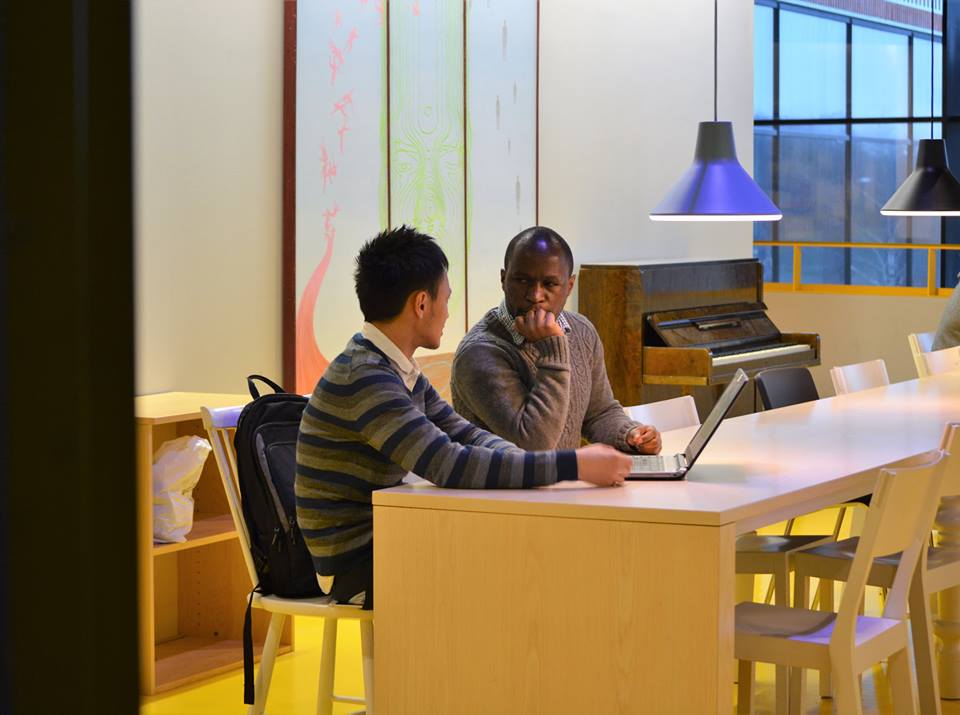
Unusual things about the KI Bachelor’s in Biomedicine
In my many conversations with friends studying in different universities around the world, I’ve come to realize that the bachelor’s in biomedicine at KI is quite unusual in some ways: not good or bad per se, just different. So here are my top 7 observations about unusual things about KI. I hope you enjoy!
1. Many different lecturers.

We have a different teacher for almost every lecture, many different project supervisors, and so on. A bonus of this is that you’re guaranteed to find teachers with a teaching style that works for you, and classes seldom have the opportunity to get dull. Plus, your network is going to be gigantic by the time you wrap up your bachelor’s degree and you’ll have met tonnes of interesting people.
2. The grading system is Fail/Pass/Pass with Distinction

GPA? Percentage? No thank you. Your grade in every course can take one of 3 outcomes: U (Fail), G (Pass), VG (Pass with distinction). Moreover, there isn’t any limitation on how many people can get the VG, which is quite eased out in comparison to the rigorous bell curve I was wrung through in high school.
3. The courses run one after the other
Juggling coursework? Nope. All your coursework is dedicated to the single course that runs at any point of time in your bachelor’s programme. The positives are that I have much less to procrastinate on, and am able to spend a good amount of time on extracurriculars.
However, don’t be fooled! The courses are often very intense and content-heavy, and you’re expected to make good use of your time to prepare. The courses are also not the same length: Tissue Biology (5 credits) lasted a stunning 2 weeks whilst Molecular Medicine-Oncology (15 credits) will last half a semester.
4. They take feedback VERY seriously.
One has to love seeing your feedback making a difference. A stunning example is one of the course directors actually changing the schedule for classes to start later because the previous year gave the feedback that it would improve attendance. Another course director turned an on-site exam into an online one as per the class’ request.

In essence, it’s easy and encouraged to make your opinions and constructive criticisms heard. The administration, the student union, and the Ombudsperson do a good job of making sure of that.
You can also look at the post-course surveys from previous years to see what students thought!
5. The application process is both fast and easy
The programme website will guide you through the process but just trust me and apply. It’s so easy. I had it even simpler because I studied at a Swedish high school and all my grades were already in the system. It was so simple in comparison to the soul-sucking applications to many other universities.
6. Every course has different forms of assessment

Most courses will include a final exam and some way of obtaining bonus points, be it mid-course exams, lab reports, project work, etc.
However, the calculation of bonus points differs, going by percentage or in an all-or-nothing fashion. Moreover, the exams themselves aren’t in a standard format since they’re set by different teachers. Whilst it can be somewhat confusing, the positive aspect of this is that there is significantly more emphasis on your understanding of the material!
7. There is a lot of group work

This is both a bane and a boon. It isn’t great for anyone who’s picky or has trouble focussing in groups but it’s brilliant for exchanging feedback, making friends, and creating something with a much larger scope than you could have managed alone.
Lab reports, project work, presentations, etc. all tend to be done in groups. I quite enjoy it personally, and it’s even better when one gets a group where everyone has a similar sense of time management or aesthetic.
Finally
I hope this gave you some insight, and if you’re a prospective student, I hope this has been useful! If you’re a current student, do you relate? What unusual things have you noticed at KI?
<3 Inika
Featured image by Patrick Engeler
Inika Prasad — Biomedicine BSc
Hello, Inika here. I’m a third-year Biomedicine bachelor’s student at KI. I'm from India and a little bit from Sweden. As a Digital Ambassador Blogger, I'll be writing about my programme, things happening in and around KI, and giving insights into university life.

0 comments